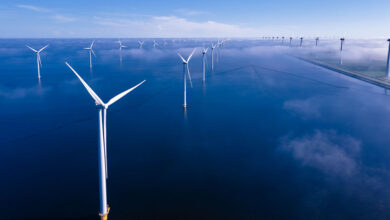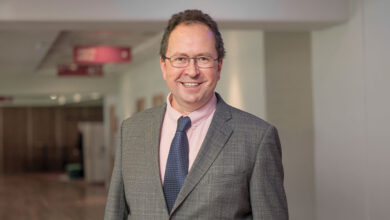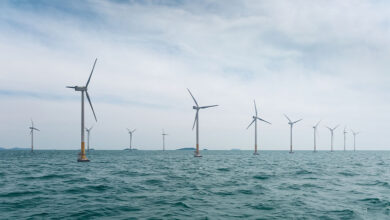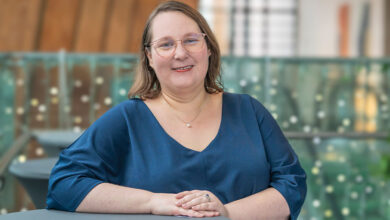ESB: Powering through the pandemic
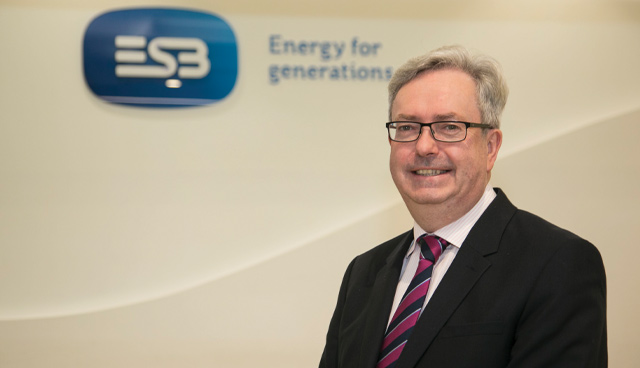
As society adapts to the realities of the Covid-19 pandemic, the shift towards a low-carbon energy system has assumed even greater resonance. eolas Magazine speaks with ESB’s Head of Corporate and Regulatory Affairs, Peter O’Shea, about the leading utility’s response to the pandemic, through the lens of colleagues, customers and communities.
Almost overnight, ESB transformed from an on-site and in-office business to having almost 4,500 of its 6,100 personnel working remotely. The transition to online business was relatively seamless, outlines O’Shea.
“Being a 93-year-old electricity company, planning has been at the core of ESB for many years.” he says, adding: “Our pandemic plan has been in place since around 2005 when SARS-CoV emerged. In fact, only 18 months ago, we had a test of our pandemic plan and garnered significant learning which assisted ESB in its initial planning for Covid-19, back in early February.”
Initial response
In the first instance, the company’s focus was on logistics and ensuring that the business continued to operate. ESB established three major targets for itself. The first was to ensure the safety of customers and employees. The second was to maintain essential services for customers. The third was seeking to assist customers facing financial difficulties.
“As we moved further into the pandemic and as government plans emerged, ESB reshaped its own internal plans. Through our generation, our networks and our supply activities, we play a critical role in keeping the lights on for domestic and business customers, which in turn supports the wider national economy. Of course, this is even more important with so many of our customers working from home. Right across ESB, we had to reshape our operations to enable this,” the Head of Corporate and Regulatory Affairs outlines.
Corporate and social responsibility
ESB works with a range of charities each year through its Energy for Generations Fund and quickly understood the difficulties its charity partners were experiencing during the pandemic. In response, the company significantly increased the size of the fund in the second quarter, bringing the total annual contribution to nearly €1.5 million. This helped to support key long-term partners, including Early Learning Initiative, Jigsaw, Pieta, Aware and Camara Education Ireland.
Meanwhile, Electric Ireland, ESB’s supply business, is the title sponsor of Pieta House’s Darkness into Light initiative. In the context of the public health response to the pandemic, it became very clear that mobilising significant numbers of people in communities across Ireland to walk together into the daylight was not going to be viable. As an alternative, ESB worked closely with Pieta to develop the Sunrise appeal, helping it to raise over €4 million to continue the vital work it undertakes.
ESB’s corporate and social responsibility (CSR) programme has always been more comprehensive than just the provision of finance. One of the initiatives that O’Shea is most proud of is linked to the closure of schools in March 2020.
“In collaboration with Camara Education Ireland and Trinity Access, ESB supported the Tech2Students campaign to help low income students access education by bridging the digital divide. ESB Networks provided its yellow van fleet and volunteers stepped up from across ESB to collect 1,300 disused laptops, which were then reconditioned and distributed among disadvantaged communities and areas with low rates of progression to higher education. It was a practical step which will have had a positive impact on the lives of the students,” the Head of Corporate and Regulatory Affairs emphasises.
Likewise, under ESB’s broader Kindness Matters initiative, employees are also encouraged to volunteer their time. “In many respects, this type of response is in the DNA of ESB. Customers are the lifeblood of the ESB, and the communities in which they live and work are the same communities that my colleagues and I belong to. ESB has always been right at the heart of communities in Ireland and that’s why, in the context of Covid-19, it will continue to focus on customers, colleagues and communities.” he adds.
Continued delivery
Today, six months on since the introduction of public health restrictions, O’Shea is still working from his home office, as are the majority of people at ESB. “Now it’s about redoubling our efforts to deliver the work we said we would deliver,” he says, adding: “The electricity industry is changing at a pace which is beyond anything we had previously considered. This is driven by the urgent need to address climate change”.
The ESB report, Dimension of a Solution – Ireland’s Low Carbon Future, published two years ago promoted the dual strategy of decarbonising the electricity system and using that clean electricity supply to electrify the heat and transport sectors. That way, electricity which currently accounts for around 15 per cent of Ireland’s emissions could help address the emissions of the heat and transport sectors which together account for around 40 per cent of Ireland’s emissions.
“ESB is at the forefront of that change”, says O’Shea. “Our Brighter Future strategy is fully aligned with our purpose to lead the transition to a low-carbon future, powered by clean electricity.”
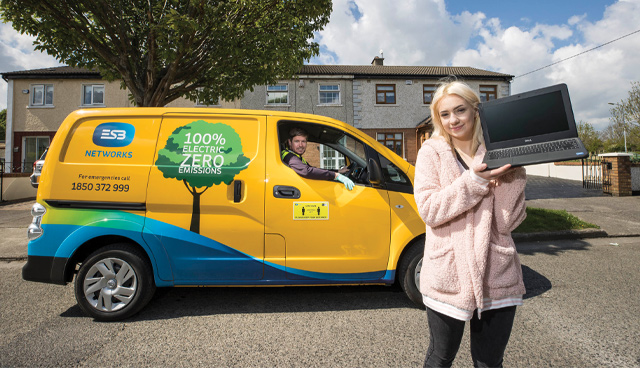
Generating electricity is probably the most visible component of that strategy. However, delivering the network capability to distribute renewable energy from all generators is also a priority. The period from 2011 to 2019 saw ESB Networks, the distribution system operator (DSO), double the installed capacity of renewable generation connected to network every three years. The period ahead will see significant investments across all voltage levels to enable further connections of large-scale renewables and the increased penetration of electric vehicles, electric heat pumps and microgeneration.
ESB Networks is also continuing with the installation of smart meters and, despite having to adjust its activities in light of Covid-19 protocols, is currently on target to deliver 250,000 new meters by year-end.
This investment will enable all suppliers, including Electric Ireland, to focus on engaging different cohorts of customers and providing new types of services as and when the new smart agenda gets underway,” O’Shea indicates.
2030
Each facet of ESB’s operation is pursued in the context of national and European policy. Strategically, the utility is looking ahead to 2030 and working within the framework of the Programme for Government’s ambitious target of a 7 per cent reduction in emissions per annum. This represents a significant increase even on the Climate Action Plan.
Among other low carbon investments, ESB is focusing on building its renewable portfolio, both onshore and offshore, and is upgrading its public EV charging infrastructure in Ireland, with support from the Government’s Climate Action Fund.
ESB Networks meanwhile is seeking to invest in smart solutions and system reinforcement to enable delivery of the Programme for Government and has had significant engagement with the Commission for Regulation of Utilities (CRU) regarding these investments as part of the upcoming price review PR5.
“The fundamental importance of this is that PR5 covers the years 2021 to 2025, half of the period to the 2030 Climate Action Plan timeline. It’s an important engagement for ESB Networks and the Regulator to get right on behalf of Irish customers to ensure that the distribution system has the capacity and capability to accommodate new renewable generation that ESB and other generators are developing, and address the future needs of customers as they adopt new low carbon technologies, such as electric vehicles, heat pumps and microgeneration,” O’Shea states.
Brighter Future
In the here and now, ESB’s priority is navigating the Covid-19 pandemic. However, the Brighter Future strategy has engendered a sense of purpose and anchored the utility, ensuring that all its activities are aligned, from core business to CSR.
Meanwhile, in the medium- to long-term, and alongside the Government and the EU, ESB shares an ambition to ensure the recovery of the economy on a basis that encourages sustainability and investment in renewable electricity, the electrification of heat and the electrification of transport.
“Ensuring sufficient investment which enables the economy to pivot is a priority in the years to come. This doesn’t mean that we seek to recreate the electricity sector as it was pre-Covid-19, rather let’s recreate it on a more sustainable basis.
“That means more renewable electricity generation, whether it be wind, solar or bioenergy; it means smarter and more efficient networks to deliver that electricity to customers; and it means empowering customers to make choices to lock out carbon because the network is capable of delivering the electricity required. That’s what a sustainable future means to ESB,” O’Shea concludes.
T: +353 1 702 7308
W: www.esb.ie


